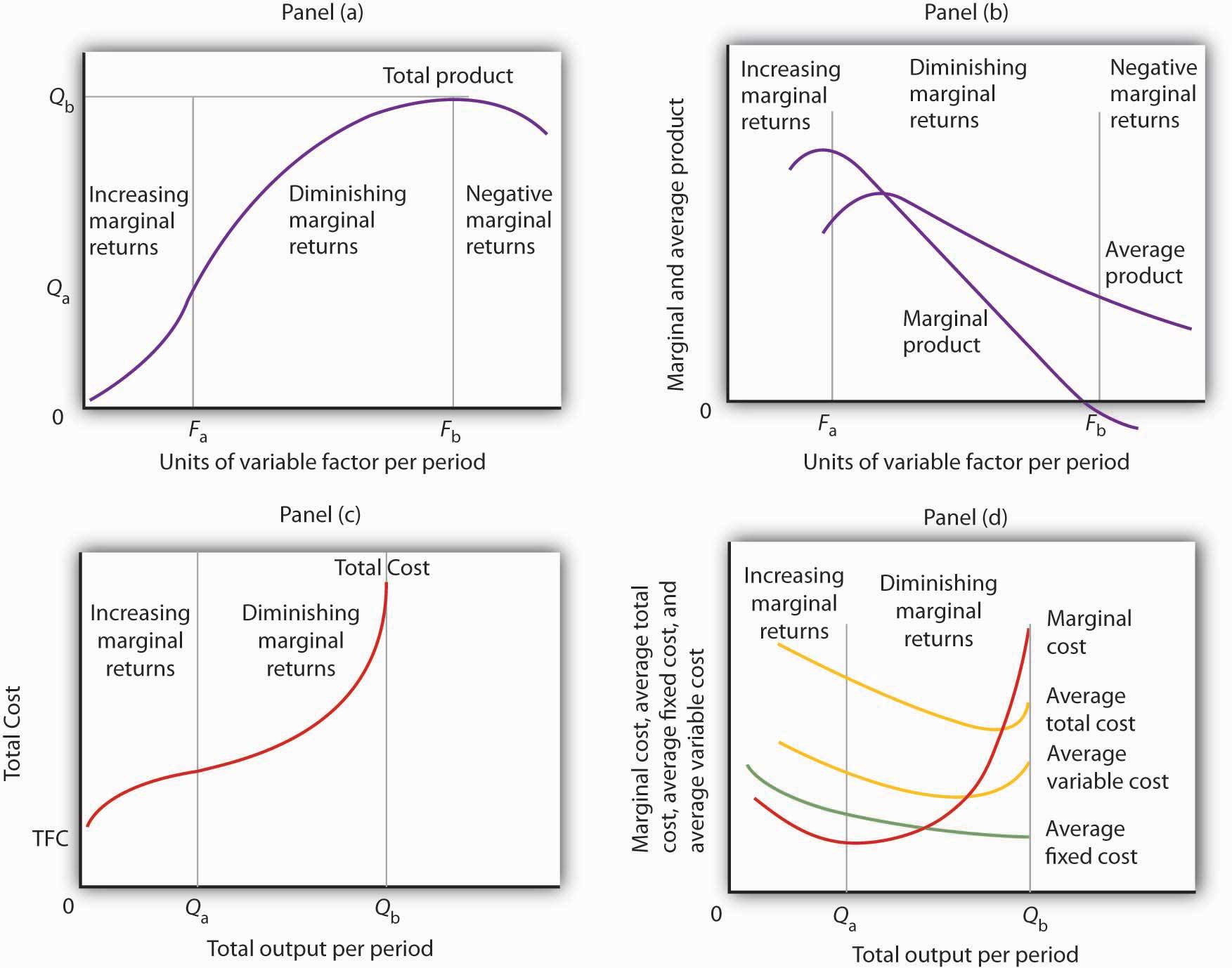The law of diminishing return states that if amount of a variable input is continuously increased, keeping all other input(s) constant, the resulting output will first increase, but after reaching a maximum point it will eventually decline.
This implies that if more and more quantities of one factor are employed in a production system, while all other inputs are held constant, rate of increase in output will gradually deteriorate (i.e., output will increase at a decreasing rate) leading to a point where increase in variable input will not make any quantitative change in output and ultimately a situation will come when successive additions of the variable input will cause reduction in total output.
ADVERTISEMENTS:
A simple example of this phenomenon could be changes in crop yield and applications of inputs. If more and more fertilizer is added to a specific piece of land, after a certain point, we will observe that further addition of fertilizer without any change in other factors of production will cause a decline in output.
If we allow the law of diminishing returns to operate, the following conditions are to be satisfied:
1. Technology Must Remain Unchanged:
If technology changes, the law of diminishing marginal returns may not remain valid since a different technology will call for a different combination of inputs. Suppose, one person can operate a big automatic machine. When we increase the number of operators keeping the amount of money spent on capital (i.e. number and specification of machine) unchanged, the output level is expected to fall gradually.
I But if we switch over from a capital intensive technology to a labour intensive technology and increase the number of labour along with the existing allocation on capital, production may not suffer since labour intensive technology will require more labourers to maintain the same output level.
2. At Least One of the Factors of Production Should He Kept Constant:
ADVERTISEMENTS:
This condition signifies that if all the factors of production increase simultaneously, in the same proportion, output will never fall, and instead there will be a monotonic increase in output, provided all other conditions remain unchanged.
3. The Input should not be Perfect Substitutes of Each Other:
In case the inputs are perfect substitutes of each other, if becomes irrelevant whether quantities of all inputs are increased proportionately or not. Because even if it becomes a disproportional change, input(s) whose quantity is increasesd more will compensate the quantity of input whose quantity has not been increased proportionately. As a result, effects of law of diminishing marginal returns will not be observed.

